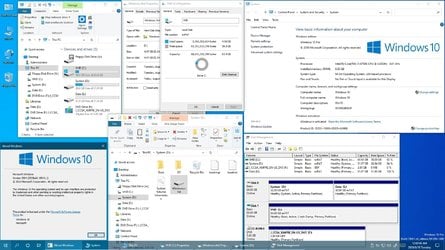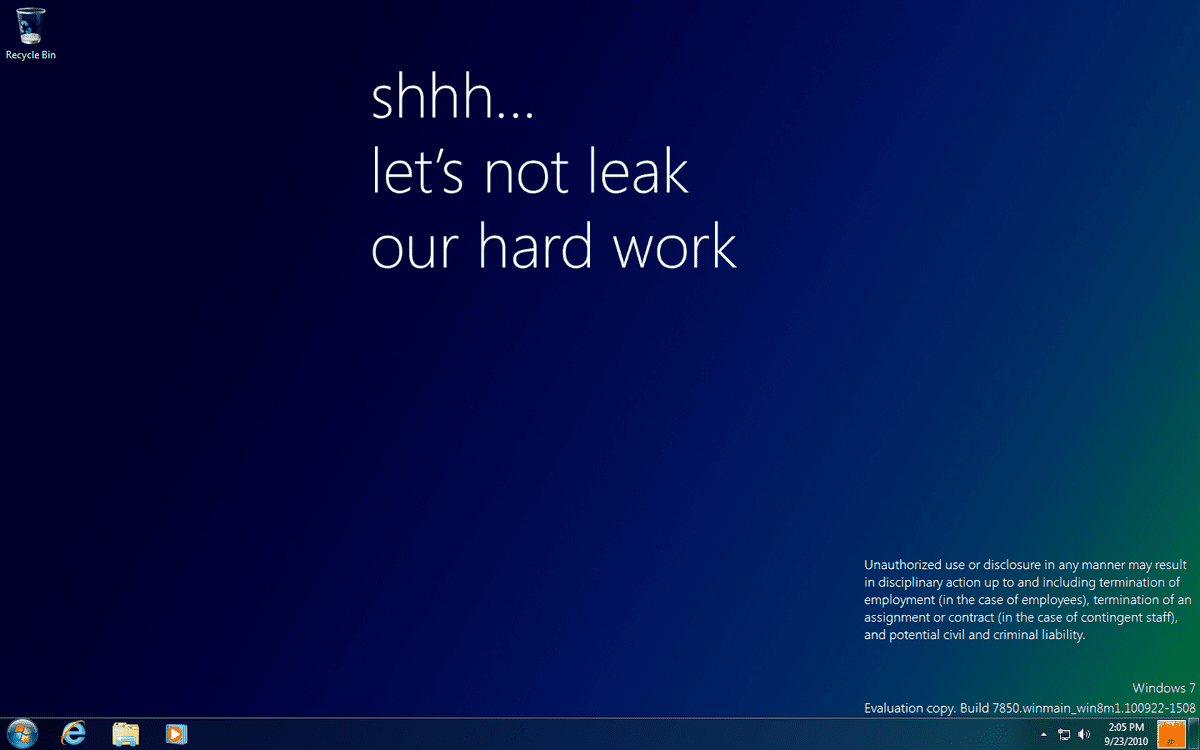I know that some UEFI based systems don't like to boot from removable media formatted with NTFS, for example, thumb drives that are formatted with NTFS. However, I'm wondering how many such systems will tolerate booting from exFAT rather than only plain FAT32.
Just out of curiosity, I created Windows installation media using exFAT and booted an 11 year old laptop (this one is not a UEFI based system) and was pleasantly surprised that it worked flawlessly.
If anyone has tried creating bootable thumb drives using exFAT, I'd like to hear what your results were. I have a program that I wrote that always creates bootable media using a FAT32 partition along with a secondary NTFS partition, but if exFAT works in most instances I may consider reworking this code to allow the user the option of using exFAT instead. I just simply don't have enough data yet to know if this will work for most people or not.
Just out of curiosity, I created Windows installation media using exFAT and booted an 11 year old laptop (this one is not a UEFI based system) and was pleasantly surprised that it worked flawlessly.
If anyone has tried creating bootable thumb drives using exFAT, I'd like to hear what your results were. I have a program that I wrote that always creates bootable media using a FAT32 partition along with a secondary NTFS partition, but if exFAT works in most instances I may consider reworking this code to allow the user the option of using exFAT instead. I just simply don't have enough data yet to know if this will work for most people or not.
My Computers
System One System Two
-
- OS
- Win11 Pro 23H2
- Computer type
- PC/Desktop
- Manufacturer/Model
- Home Built
- CPU
- Intel i7-11700K
- Motherboard
- ASUS Prime Z590-A
- Memory
- 128GB Crucial Ballistix 3200MHz DRAM
- Graphics Card(s)
- No GPU - CPU graphics only (for now)
- Sound Card
- Realtek (on motherboard)
- Monitor(s) Displays
- HP Envy 32
- Screen Resolution
- 2560 x 1440
- Hard Drives
- 1 x 1TB NVMe Gen 4 x 4 SSD
1 x 2TB NVMe Gen 3 x 4 SSD
2 x 512GB 2.5" SSDs
2 x 8TB HD
- PSU
- Corsair HX850i
- Case
- Corsair iCue 5000X RGB
- Cooling
- Noctua NH-D15 chromax.black cooler + 10 case fans
- Keyboard
- CODE backlit mechanical keyboard
- Mouse
- Logitech MX Master 3
- Internet Speed
- 1Gb Up / 1 Gb Down
- Browser
- Edge
- Antivirus
- Windows Defender
- Other Info
- Additional options installed:
WiFi 6E PCIe adapter
ASUS ThunderboltEX 4 PCIe adapter
-
- Operating System
- Win11 Pro 23H2
- Computer type
- Laptop
- Manufacturer/Model
- Lenovo ThinkBook 13x Gen 2
- CPU
- Intel i7-1255U
- Memory
- 16 GB
- Graphics card(s)
- Intel Iris Xe Graphics
- Sound Card
- Realtek® ALC3306-CG codec
- Monitor(s) Displays
- 13.3-inch IPS Display
- Screen Resolution
- WQXGA (2560 x 1600)
- Hard Drives
- 2 TB 4 x 4 NVMe SSD
- PSU
- USB-C / Thunderbolt 4 Power / Charging
- Mouse
- Buttonless Glass Precision Touchpad
- Keyboard
- Backlit, spill resistant keyboard
- Internet Speed
- 1Gb Up / 1Gb Down
- Browser
- Edge
- Antivirus
- Windows Defender
- Other Info
- WiFi 6e / Bluetooth 5.1 / Facial Recognition / Fingerprint Sensor / ToF (Time of Flight) Human Presence Sensor





















